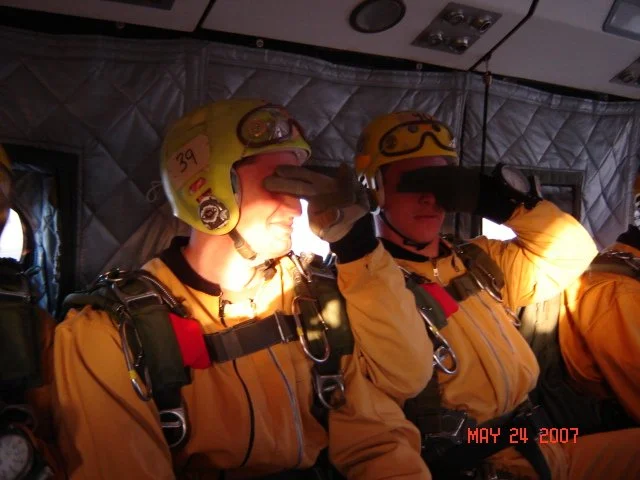Don
Veteran - served in Iraq & Afghanistan
U.S. Navy & U.S. Army Special Forces (Green Beret)
Branches: U.S. Navy (1993–1997; Reserve 2001) → U.S. Army (2002–2014)
Deployments: 8 Total: Two Gulf tours (Navy), five to Iraq, and one to Afghanistan (Army).
Now: Pursuing a Master’s in Social Work through the VA Voc Rehab program to become a clinical therapist for veterans.
“Liberation is never simple,” he says. “For civilians, the war doesn’t end when the soldiers leave.”
Don’s service began at seventeen, on the deck of a Navy ship, eyes locked on the stars. He remembers the silence. The clarity of the night sky. The humbling vastness of it all. He served from 1993 to 1997 as an Operations Specialist on visit-board-search-and-seizure teams, boarding merchant vessels smuggling oil and piloting them to allied ports.
By 2001, he missed the camaraderie and joined the Navy Reserve. Then 9/11 happened. Wanting to be closer to the action, he switched branches entirely and went through Army basic training all over again. He took a pay cut and landed in Kansas—“as far from the fight as you can get.”
He spent the next eleven years as a Special Forces operator. Five combat tours in Iraq. One in Afghanistan. Dozens of missions that never made the news. His reasons were layered—duty, challenge, something bigger than himself. He doesn’t talk about medals. He talks about people.
Then a Special Forces recruiter came through. Don raised his hand. He was thirty. Older than most candidates. He made it.
“Those relationships are stronger than blood,” he says. “My worst day in Special Forces was still better than my best day anywhere else, because of who I was surrounded by.”
“It wasn’t that I dreamed of being a Green Beret,” he says. “I just wanted to see if I could do it.”
He spent the next eleven years as a Special Forces operator. Five combat tours in Iraq. One in Afghanistan. Dozens of missions that never made the news. His reasons were layered—duty, challenge, something bigger than himself. He doesn’t talk about medals. He talks about people.
“In the kinetic moments, everybody suffers. Afterwards, it’s the refugees who carry the long shadow.”
Then came the hardest mission.
In 2012, a blast in Afghanistan ended his military career. The return home was brutal—years of surgeries, physical pain, and the collapse of identity. He spiraled into drinking. Until 2014, when he quit cold. First for his wife and kids. Then for himself.
“At first, it was about being a better husband, a better father,” he says. “Eventually, it became about being a better me.”
Sobriety gave him space to confront what had been buried: trauma, anger, grief. He calls it the hardest and most rewarding thing he’s ever done.
There’s one memory that stays with him. Outside Baghdad, after two firefights, his team tracked a fleeing insurgent into a neighborhood. They knocked on a family’s door at 3 a.m. The family was seated in the living room, frozen. The mother’s eyes kept flicking to her right. Behind her stood a man with a knife pressed to her back.
“We were two feet away,” Don says. His team managed to disarm and capture the man without firing a shot. The family thanked them, but Don saw the dread in their eyes. “They had to live there after we left. We went back behind our walls. They had to deal with the fallout.” That night changed his view of war. It deepened his compassion for displaced people.
He sees a shared thread between veterans and refugees. “Both are changed forever by forces they didn’t control,” he says. “It’s not whole cultures or religions causing this. It’s a few bad actors with a lot of influence. Humanity is the same everywhere. Love is love. Grief is grief.”
“I want to be the clinician I needed,” he says. To give people what war almost took from him—the belief that they can come home to themselves.
Now eleven years sober, Don is channeling that same drive into healing work. He’s rebuilding his life through study and service, training to become a clinical social worker at the VA.




